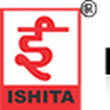Judge in a labour court has asked the complainant to carry out the examination-in-chief prior to his cross-examination. Can you please advise on what exactly is the examination-in-chief before the cross-examination of the complainant? Additionally, what is the process, or does anyone have a format for the same?
From India, Mumbai
From India, Mumbai
Examination-in-chief is the statement which the complainant/workman records before the court. Generally, in his evidence, the workman repeats his statement of claim and elaborates the incidences. After that, the employer is granted an opportunity to cross-examine him.
From India, Faridabad
From India, Faridabad
Examination-in-Chief
"Examination-in-Chief," also called "Direct Examination," is the starting point in any litigation. It is defined under section 137 of the Indian Evidence Act, 1872.
The Examination-in-Chief of a witness by a party who calls him shall be his Examination-in-Chief. It is the first oral evidence after the witness has been sworn in before the adjudicating forum.
It is the province of the party by whom the witness is called to examine for the purpose of eliciting from the witness all the material facts within his knowledge which tend to prove the party's case.
Examination-in-Chief in Labor Court
With reference to the case in the Labor Court, the claimant has to state orally what he has already mentioned in the claim statement, putting forth all the facts cogently leading to the claim. If the claim pertains to his dismissal, discharge, or retrenchment from service, he has to state the position held by him under the respondent, the period of employment right from his appointment, the salary last drawn, the circumstances leading to the cause of action, and the remedy prayed for. Along the course of his evidence, he should mark the documents, if any, as his exhibits.
From India, Salem
"Examination-in-Chief," also called "Direct Examination," is the starting point in any litigation. It is defined under section 137 of the Indian Evidence Act, 1872.
The Examination-in-Chief of a witness by a party who calls him shall be his Examination-in-Chief. It is the first oral evidence after the witness has been sworn in before the adjudicating forum.
It is the province of the party by whom the witness is called to examine for the purpose of eliciting from the witness all the material facts within his knowledge which tend to prove the party's case.
Examination-in-Chief in Labor Court
With reference to the case in the Labor Court, the claimant has to state orally what he has already mentioned in the claim statement, putting forth all the facts cogently leading to the claim. If the claim pertains to his dismissal, discharge, or retrenchment from service, he has to state the position held by him under the respondent, the period of employment right from his appointment, the salary last drawn, the circumstances leading to the cause of action, and the remedy prayed for. Along the course of his evidence, he should mark the documents, if any, as his exhibits.
From India, Salem
Dear Colleague,
In addition to the comments from the learned colleagues, I just want to add one point, and that is, in Examination in chief, no leading questions can be asked to the witness being examined, whereas the same is permitted during the cross-examination.
Regards,
Vinayak Nagarkar
HR and Employee Relations Consultant
From India, Mumbai
In addition to the comments from the learned colleagues, I just want to add one point, and that is, in Examination in chief, no leading questions can be asked to the witness being examined, whereas the same is permitted during the cross-examination.
Regards,
Vinayak Nagarkar
HR and Employee Relations Consultant
From India, Mumbai
CiteHR is an AI-augmented HR knowledge and collaboration platform, enabling HR professionals to solve real-world challenges, validate decisions, and stay ahead through collective intelligence and machine-enhanced guidance. Join Our Platform.





 9
9
